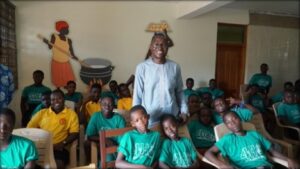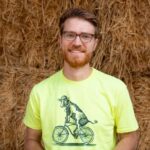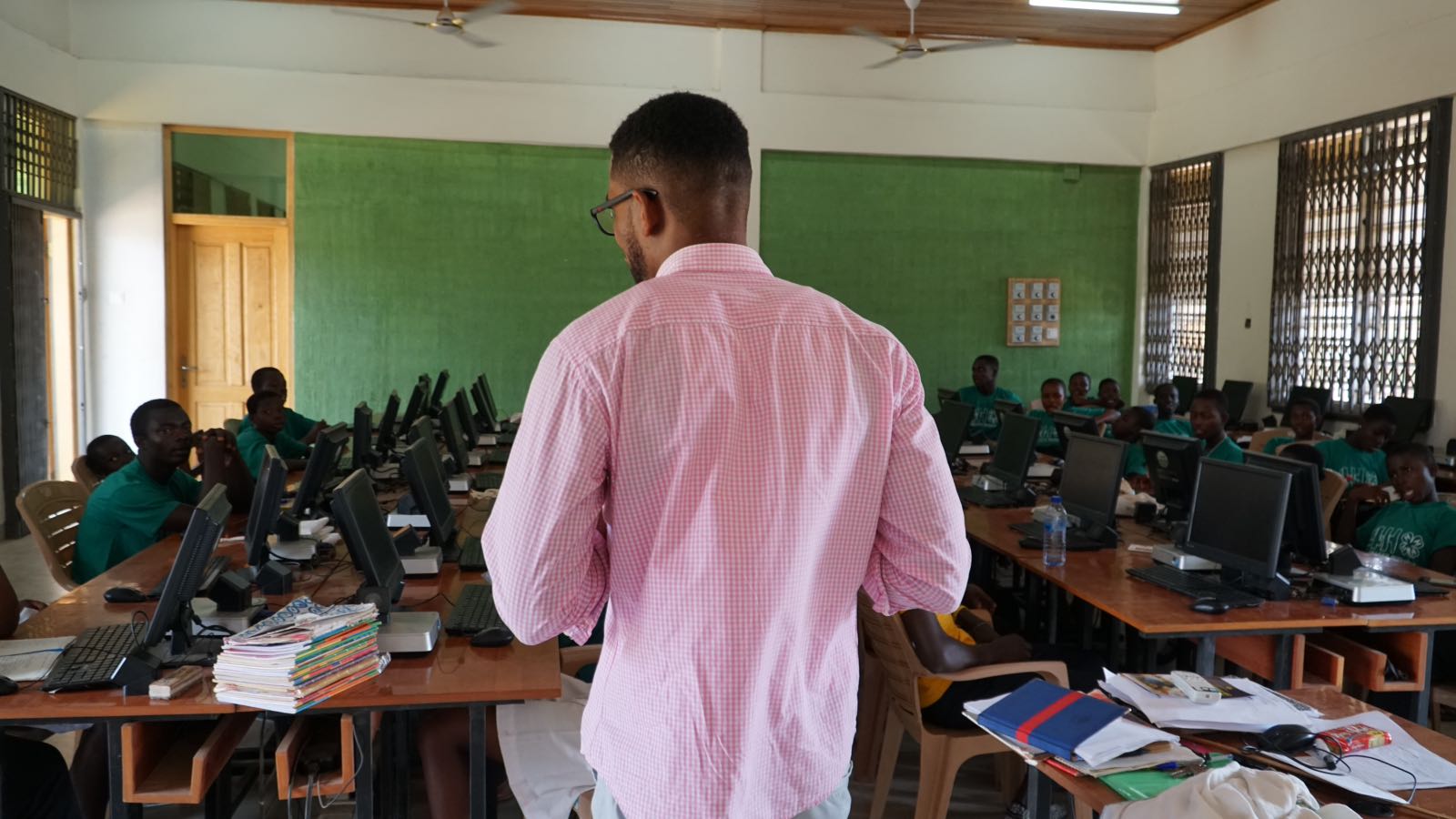
From its origins as corn clubs in the United States to chapters in Sub-Saharan Africa, 4-H’s involvement stretches across the world. My involvement in agriculture started by raising market hogs through 4-H for the county fair. I developed an appreciation for livestock nutrition whereby I tried to improve my pigs’ diet to optimize their appearance on show day. This passion shaped my decision to study animal science and upon completion of my degree, I continued upon this background to work with Ghanaian youth in agriculture as an AgriCorps Fellow.

Through my four months as a fellow, I lived in the community of Kobina Ansa located in the Central Region of Ghana. I split my time between the roles of agriculture teacher, extension educator, and 4-H leader. While each member of our team had our own agriculture expertise, we sought local leaders in agriculture to work with the students. Given my proximity to the University of Cape Coast (UCC), one of the top agriculture universities in Ghana, there were tremendous resources for collaboration and connections. One of the current endeavors at UCC was developing high-yielding, pest resistant cowpeas. The lead professor, Dr. Asare, donated some of these novel seeds to my school to grow in the school garden. On one of his off days, he visited with the students to talk about his journey through agriculture from growing up in a small town in the Eastern Region to becoming a Department Head at UCC.

After his visit, one of my students, Ernest, told me he wanted to become a professor. While I was elated to hear about Ernest’s desires, I pondered how someone at his age could already know their future. Throughout my time I had many conversations with Dr. Adom, a faculty member in the UCC business school. When he was in the 6th grade a professor from UCC visited his remote town in the southeast corner of Ghana and from that moment on he made it his goal to become a professor. When I told him about the conversations that I had with Ernest, he didn’t even flinch, “Oh he’s not lying to you. You better believe him when he says that.”
Flash forward one month and this leads to the Central Region 4-H Leadership, Education, and Development (LEAD) workshop. This event included sessions between UCC professors, district Extension agents, and community leaders, as well as a 4-H Creed recitation competition. Ernest, the student with the goal of becoming a professor, finished 2nd in this contest. At the end of the day, the students couldn’t stop talking about their favorite parts as they made a sea of green in their 4-H t-shirts.

In my final few days in community, I took the chance to thank my students’ parents for letting me work with them that term. One night I walked to the nearby town of Akoanso, to speak with the family of Emmanuel, our 4-H chapter’s vice president. I relayed to his mom the contributions he had made from serving as a leading example to being determined to see our club succeed. Emmanuel saw me off and as we walked towards the road he said, “Sir [Conor], both of my parents are farmers and I want to take what I learn at the school garden and 4-H club, to teach them how to be better farmers.” This was the last thing he said, and he quickly made a turn back to his house to continue helping his family prepare dinner. Emmanuel’s words lingered with me. In the U.S., 4-H agriculture programs serve the purpose of giving students the opportunity to expand their knowledge about agriculture, pass along this knowledge to their families, and be inspired to pursue a career in agriculture. As I go forward, I won’t be surprised if I get a call saying that Ernest is a graduate student pursuing his dream or that Emmanuel has become the best farmer in the district. For I may not know where our futures will take us, but I have no doubt that one day my pathway will intertwine with the future leaders of Ghanaian agriculture.
In Memory of Dr. Alex Yaw Adom


